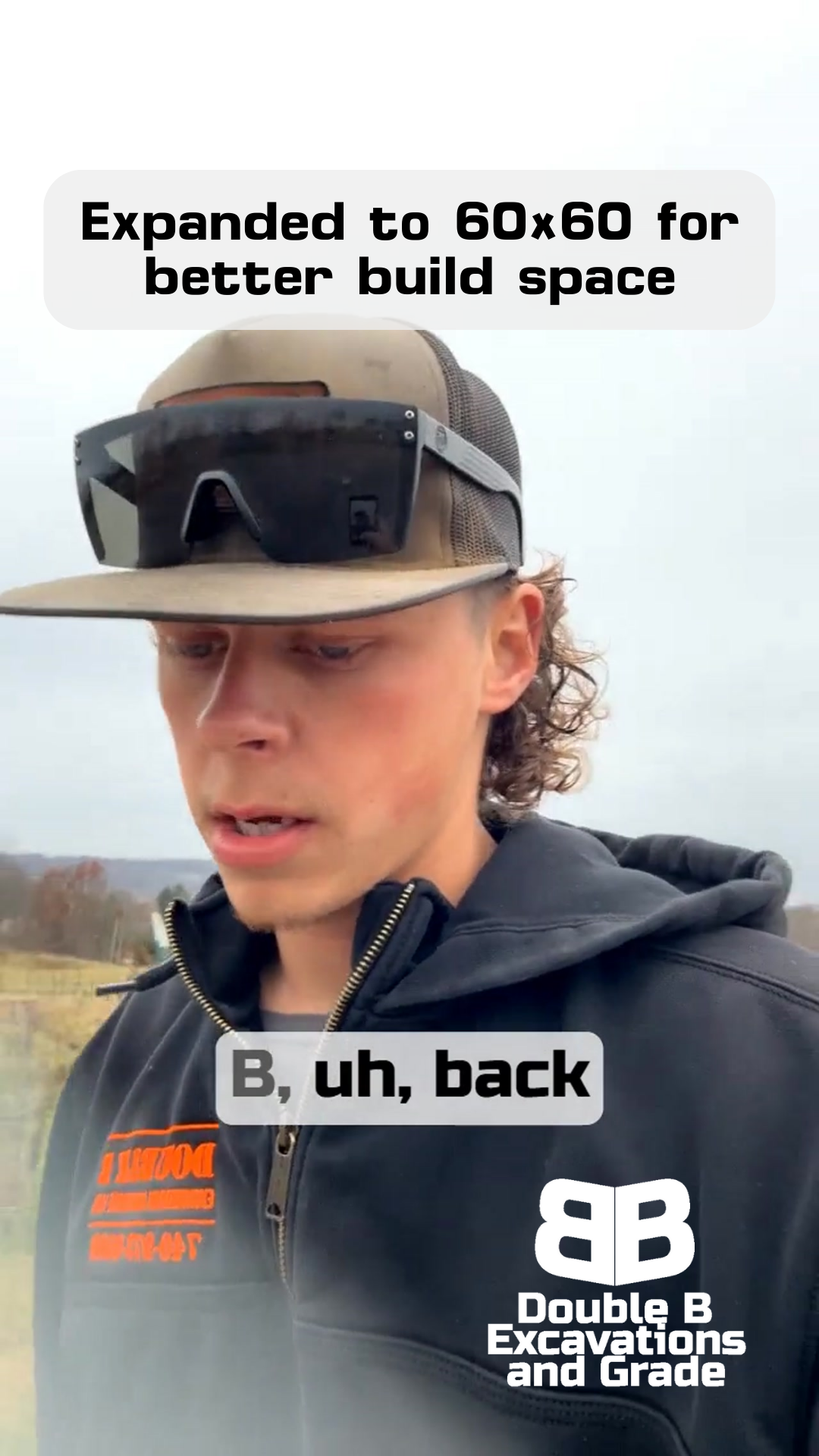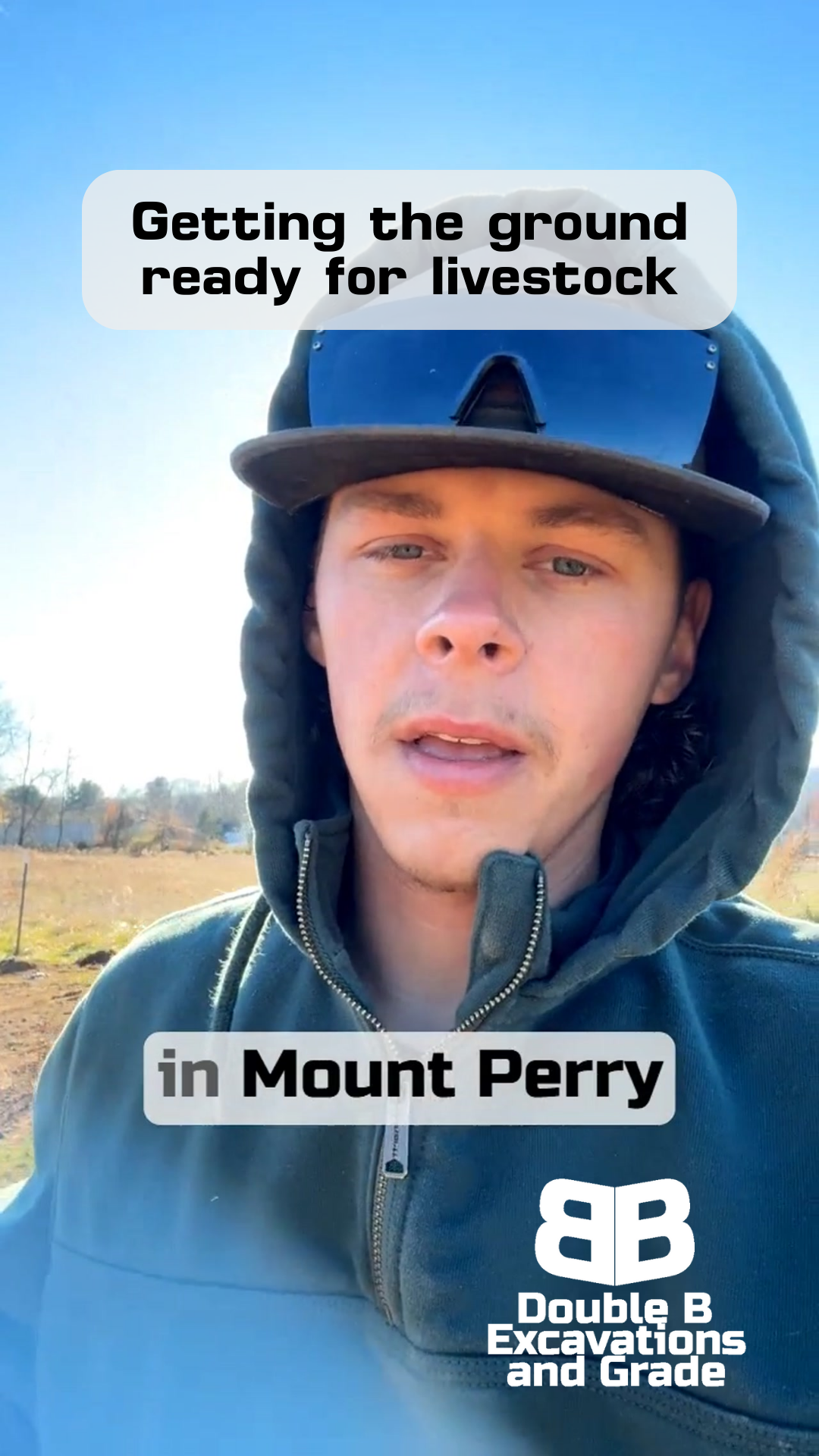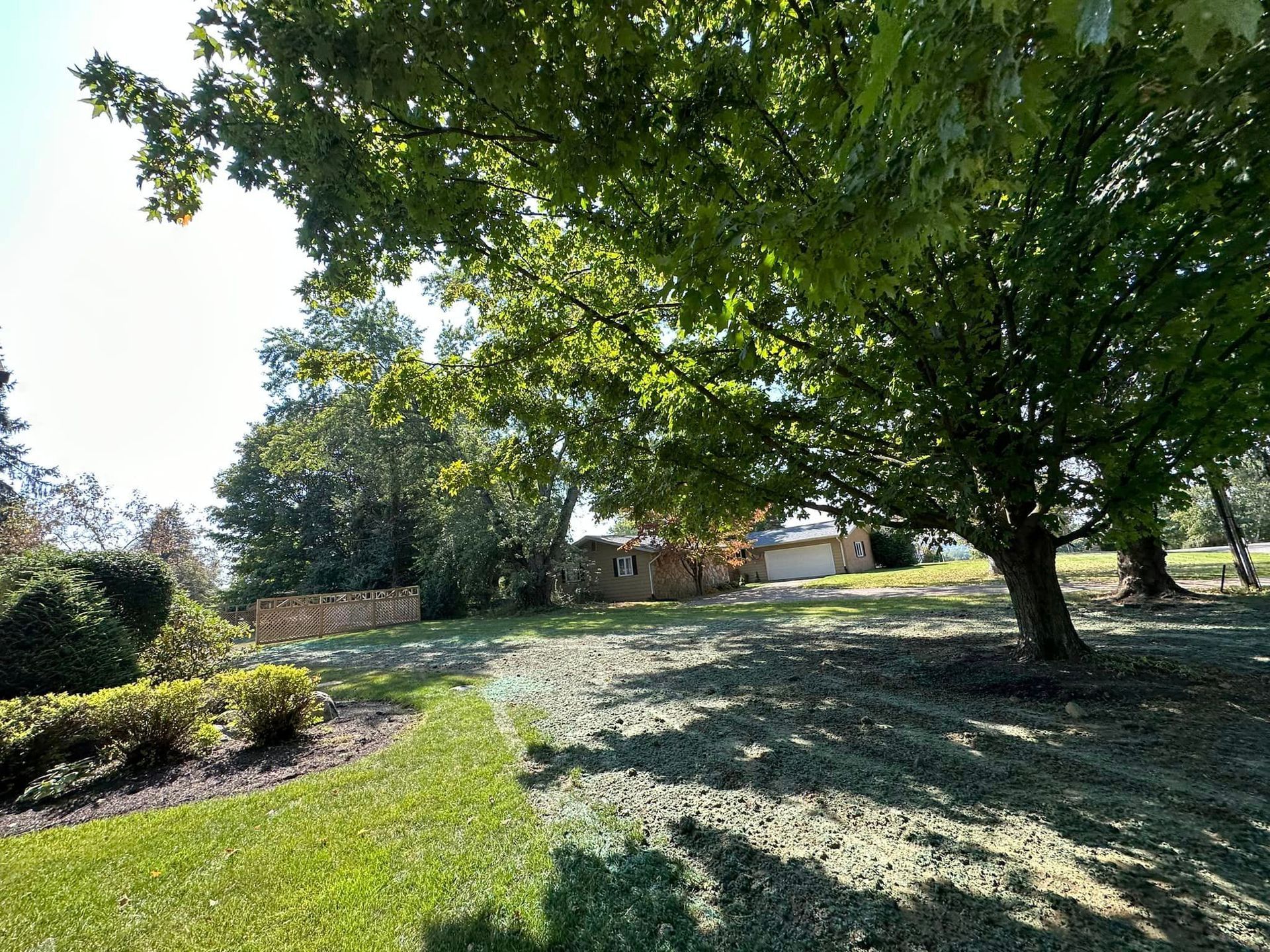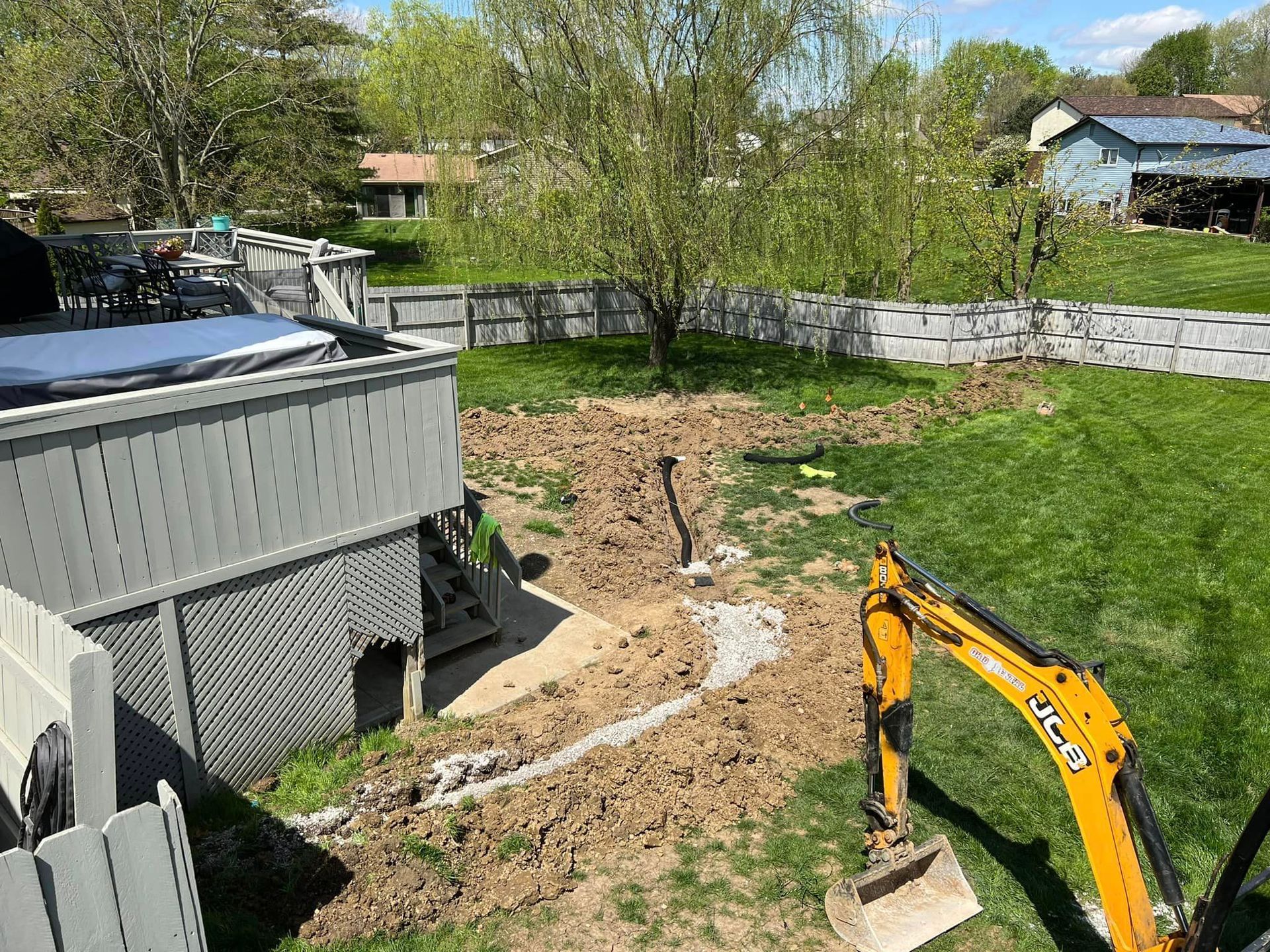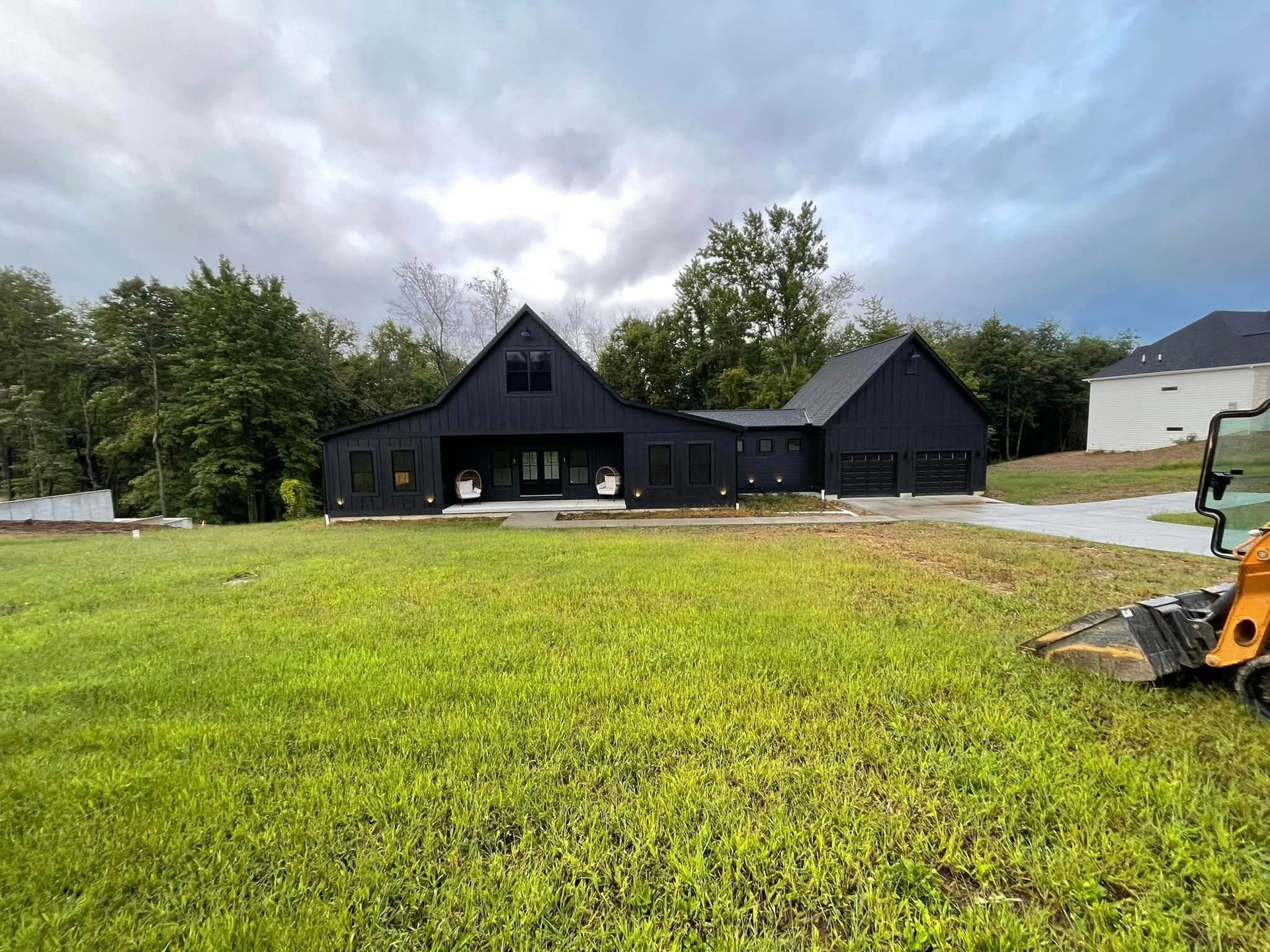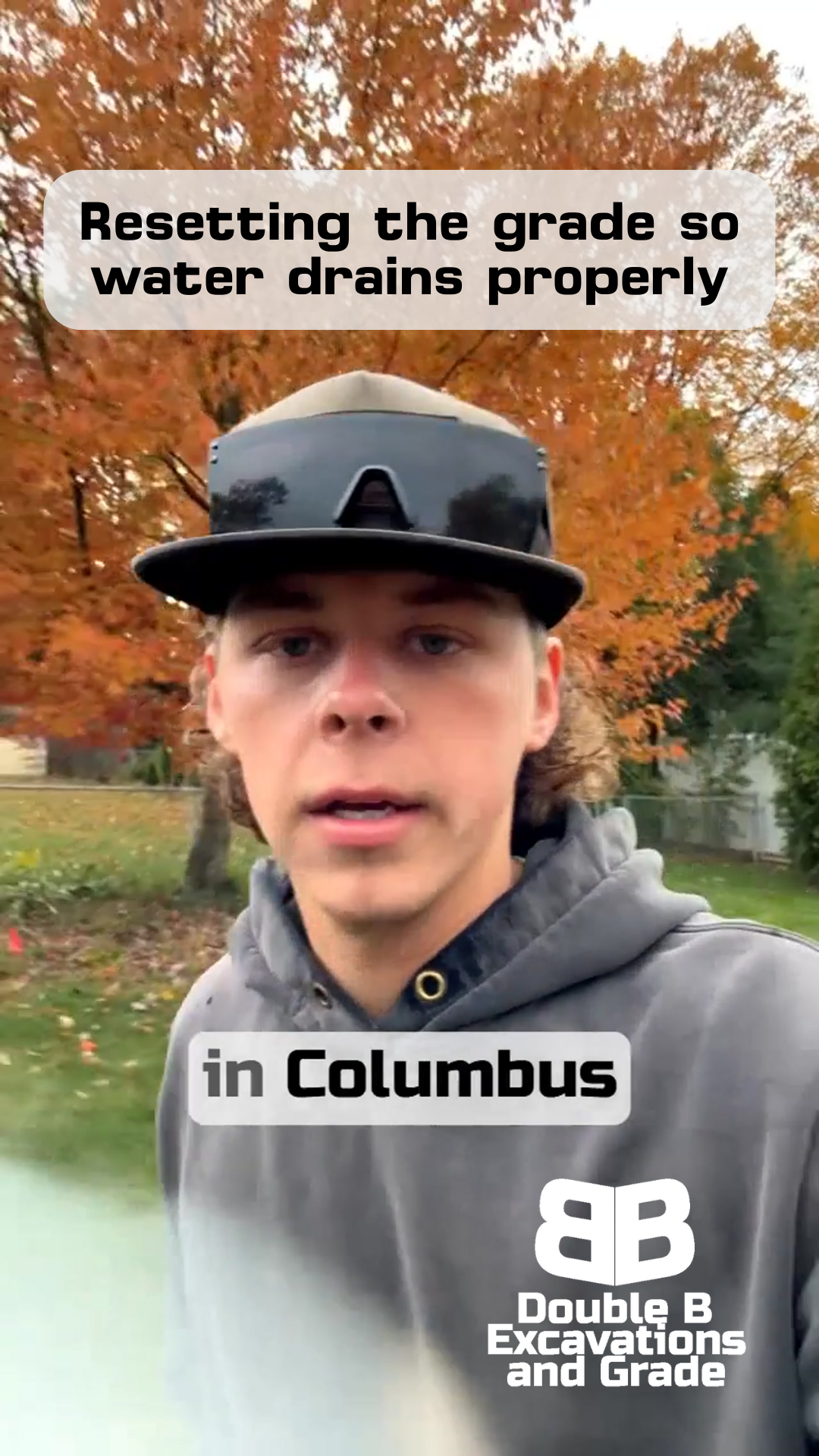What's a Construction Driveway and Why Does Your Building Project Need One?
Double B Excavations & Grade LLC
What Construction Driveways Are For
SETTING THE STAGE FOR THE GOINGS ON OF CONSTRUCTION
Think the first step in building your new home is laying the foundation?
Actually, it starts even before that.
Before the first concrete truck can roll in, before any building materials arrive, you need a solid way to get everything to your building site.
That's where a construction driveway comes in.
We're out here in Centerburg today, working on exactly this kind of project.
A construction driveway might not win any beauty contests, but it's probably the most important part of your early building process.
Without it, you're looking at stuck trucks, delayed deliveries, and a whole lot of headaches.
Welcome to Double B!
What Makes It Different
So what makes a construction driveway different from your regular gravel driveway?
It's all about strength and purpose. While your final driveway is built to handle daily traffic from cars and pickup trucks, a construction driveway needs to support heavy equipment, concrete trucks, and building material deliveries - day after day, in all kinds of weather.
We build these using specific materials - what we call base twos and three o fours. That's contractor talk for different sizes of gravel that, when laid right, create a super stable surface. Sure, it might not look as pretty as your finished driveway will, but that's not the point right now. Think of it like the work boots of driveways - not fancy, but ready to handle the tough stuff.
The real magic is in how we layer these materials. First, we strip everything down to solid ground. Then we build it back up in a way that can handle all that heavy traffic without sinking or washing out.
It's like building a temporary road just for your construction project - because that's exactly what it is.
Key Components
Let's break down what goes into a proper construction driveway.
First, there's more to it than just dumping some gravel and calling it good.
Every part serves a purpose, especially when you're dealing with new construction in places like Centerburg where the weather can throw anything at you.
The most important part you can't even see - it's the culvert running underneath.
On this project, we installed one that handles any water coming off the road.
The county actually required it, and they're right to.
When you're moving this much fill dirt and building up a driveway this size, you need to think about where that water's going to go.
Without proper drainage, you could end up with a washed-out mess after one good rain.
The Construction Process
Here's how we tackle these projects.
After stripping everything down, we start building up the base.
Think of it like making a layer cake, except each layer is carefully chosen gravel that serves a specific purpose.
We're not just building a path - we're creating access to the house pad, future parking areas, and everything else that's going to be part of this property.
On this Centerburg project, we've got multiple destinations to think about - the main house pad in back, another pad closer to the front, and a dedicated parking area for the future.
Each of these needs solid access, and that's what drives our planning process.
We build up the driveway higher in some spots, making sure everything ties together in a way that's going to work not just during construction, but for years to come.
The beauty of doing it right the first time is that when we come back in mid-summer to put on the finishing touches, we won't need to fix any major issues.
The base will already be solid, the drainage will be working, and we'll just need to make it look pretty.
Why It's Essential
Here's the thing about construction driveways - you can either do them right from the start or learn the hard way why you should have.
We've seen it all: concrete trucks stuck in the mud, building materials that can't make it to the site, and driveways that wash out after one heavy rain.
Each of these problems means delays and extra costs that nobody wants to deal with.
Plus, most counties (including ours here in Knox County) have requirements about site access during construction.
That culvert we installed?
It's not just a good idea - it's often required by code.
When you do things right, inspections go smoother, deliveries arrive on time, and your whole project stays on track.
What Happens After Construction
You might be wondering what happens to all this work once the house is built.
Well, that's the beauty of a well-planned construction driveway - it becomes the foundation for your permanent driveway.
Once all the heavy equipment is done and the major construction is finished, we'll come back (mid-summer for this project) to put on the finishing touches.
We'll grade everything one final time, add a top layer of material, and make it look nice and clean.
All that heavy-duty base material underneath?
It'll keep serving its purpose, giving you a solid, well-draining driveway that'll last for years to come.
Looking Forward
Whether you're building in Centerburg or anywhere else in central Ohio, that first driveway decision sets the tone for your whole project.
It might not be the most exciting part of building your new home, but it's definitely one of the most important.
Got questions about your own building project?
We're always happy to walk properties and talk through what you'll need.
After all, every piece of land is different, and having someone who knows what to look for can save you a lot of headaches down the road.
